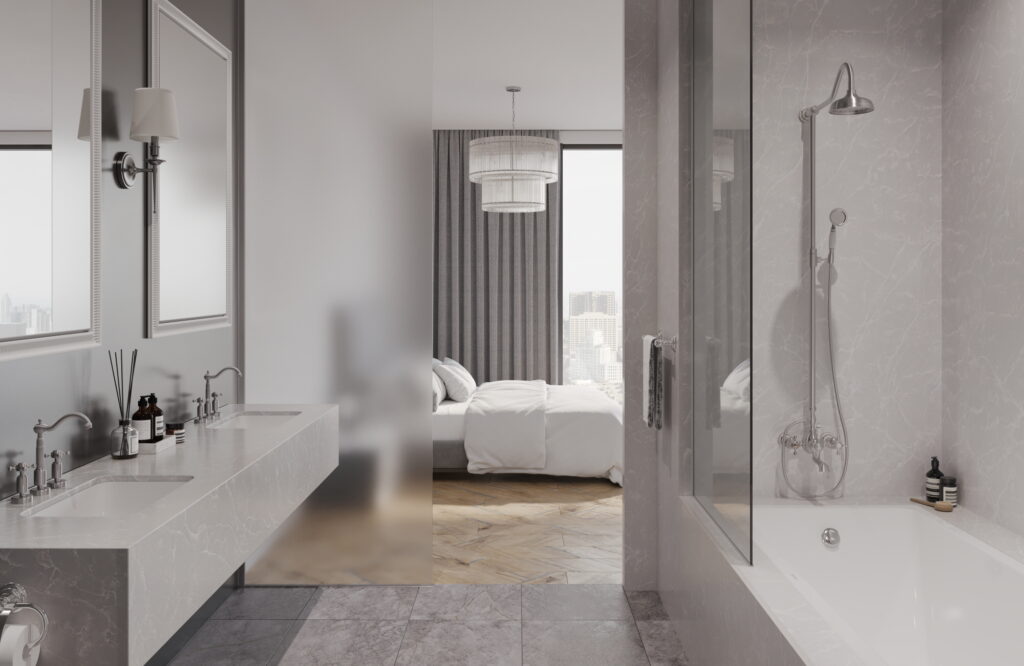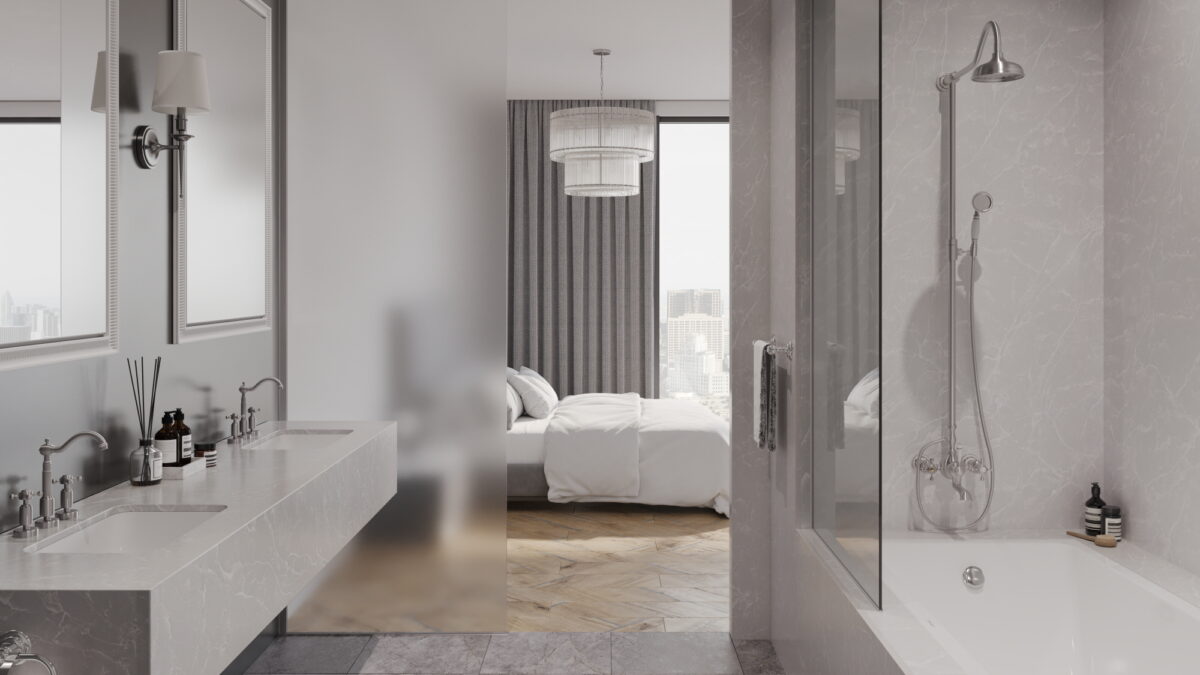
Ranking seven on the Mohs Hardness Scale, quartz is an extremely durable and lustrous countertop material.
If you’re looking for something attractive to add to your space during an upcoming bathroom renovation, quartz countertops for bathrooms are a good option to consider. Read on to learn whether these surfaces are right for you.
Introduction to Quartz Countertops
Quartz countertops are made from engineered stone. They contain natural quartz, but they also include added resins to enhance strength. Plus, since there are several available colors for any quartz surface, they include materials to add sheen and hue as well.
Quartz is one of the most popular types of counters because of its versatility. It’s easy to apply anywhere and comes in a diverse range of styles and designs.
Why Choose Quartz for Bathrooms?
Quartz is nonporous, meaning that it doesn’t have holes that absorb stains from liquid spills. You also don’t need to pay extra to seal and reseal the pores. This makes it an efficient material to prevent staining from water, makeup, hair dye, toothpaste, and other common bathroom staples.
Quartz Countertop Color Options
Quartz also comes in many color options. Classic whites and creamy neutrals provide warmth and elegance. They pair well with soft lighting, wood vanities, and warm-colored decor.
You can also go bold with blacks and cool greys. These are cooler and pair well with metal accents and trim. There are also some cool countertops that incorporate blue and green to consider, so look at all of your VIATERA quartz options before making a decision.
The Pros and Cons of Quartz in the Bathroom
There are several advantages of quartz countertops. They include:
- Durability
- Low likelihood of staining
- Easy maintenance
- Beautiful style
Some disadvantages include:
- Cost
- Sensitivity to heat
However, note that a quartz countertop’s long lifespan means that you won’t need to replace it prematurely. Investing in durability can save you money in the long run.
Designing with Quartz Countertops
To design with quartz countertops, you should:
- Choose whether you want a warm or cool undertone
- Choose thin/thick veining for marble-look quartz
- Consider speckled surfaces for texture
- Match your quartz with backsplashes
- Consider placement and slab size
Quartz vs. Granite: Comparing Bathroom Countertop Materials
Comparing quartz with materials like porcelain and granite can help you make the right decision. But what are the differences between quartz and granite countertops?
A quartz surface is harder than granite, and it’s nonporous while granite has pores. This makes it more durable. It also has an extremely customizable aesthetic so that your counter can perfectly fit your space.
Granite is less expensive than quartz. HomeAdvisor places granite at a price point of $2000-$4500 while they pinpoint quartz as between $3000-$7500. However, if you can afford granite’s upfront costs, you’ll save on future replacements and maintenance fees.
Quartz is more environmentally friendly than granite because it’s manufactured regionally. This means fewer emissions (and costs) for transit.
Find Quartz Countertops for Bathrooms Today
Now that you know the basics of quartz countertops for bathrooms, it’s time to begin planning your bathroom upgrade. Our team is excited to discuss VIATERA quartz and other materials so you can choose the perfect surfaces for your home. Reach out to LX Hausys with any remaining questions and get a quote ASAP.

